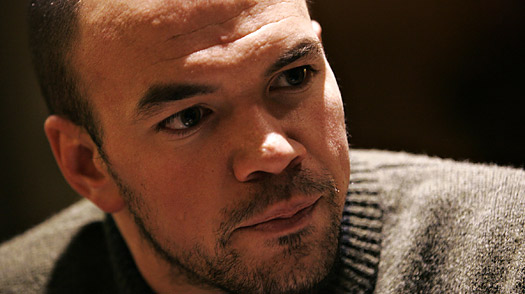See this recent piece in Time Magazine about Tim DeChristopher’s stunts and the upcoming mass action on March 2nd.
To Protect Public Land, Eco-Protesters Get Creative
By Bryan Walsh Saturday, Jan. 31, 2009

You may have never heard of the Monkey Wrench Gang—unless you read the 1975 novel by maverick writer and nature lover Edward Abbey, who introduced the world to a fictional collection of green misfits waging a guerrilla war against industrialization in the American West. They sabotage bulldozers and construction sites, burn billboards and destroy dams, all to keep their beloved Southwestern desert pristine. Think of it as muscular environmentalism, a world apart from the wonky work on climate change that now defines the mainstream green movement.
Still, the outlaw spirit lives on in the work of contemporary monkeywrenchers like Tim DeChristopher, a 27-year-old college student who singlehandedly disrupted a multi-million-dollar land auction that would have put hundreds of thousands of acres of public lands in southern Utah in the hands of oil and gas companies. But DeChristopher didn’t use sabotage or homemade bombs—just chutzpah.
The Bureau of Land Management (BLM), which administers America’s public lands, was running the auction on Dec. 19, in the waning days of the Bush Administration. Environmental groups including the Southern Utah Wilderness Alliance (SUWA) had been fighting the move, arguing that the energy companies would damage nearby national parks and culturally sensitive areas. But the fight seemed lost, until DeChristopher, an economics student at the University of Utah, arrived at the sale. “I saw this as a very corrupt and fraudulent process, and a threat to my future,” he says.
He decided to do something, but what? He thought about making a show or a speech, but as he watched the rapid-fire auction unfold around him he had an idea. He would bid himself—entirely without the cash to pay for any land he might win. “I thought I’d just drive up the prices,” DeChristopher says.
If BLM officials thought it was odd that a 27-year-old dressed like he’d just gotten out of class—as DeChristopher had—was bidding for oil and gas leases, they didn’t say anything. At first he simply bid near the beginning of an auction, to keep prices rolling, but as the sales continued, he started to win plots of land—12 parcels in all, more than 22,000 acres, at the cost of $1.79 million. By the end, DeChristopher was simply bidding nonstop, and BLM officials finally caught on to what he was doing and took him into custody. Though now in the hands of the feds, he remains cool. “I told them I was there to commit civil disobedience and that this was a fraudulent auction,” he says. (See pictures of the world’s most polluted places.)
At the time, authorities made noises about prosecuting DeChristopher if he failed to come up with the funds. He and his friends put out an appeal on the Internet, and less than a month after the sale, he had raised over $100,000 in donations, enough to cover legal expenses and the initial payment for the land rights. It’s not clear at the moment whether the BLM will even take his money. The legal status of the parcels is in limbo, pending an ongoing investigation—as is the question of whether or not the government continues to plan to press charges. DeChristopher says any consequences are worth it. “I’ve been very surprised by how much support we’ve gotten,” he says. “It’s so exciting to see how many people share my value for the land and the climate.”
Though DeChristopher’s unique protest brought significant attention to the Utah auction—CBS News, among others, profiled him—the sale was doomed for other reasons. On Jan. 17 a federal judge issued a temporary restraining order against the BLM, siding with the green groups that argued that oil and gas exploration would inflict irreparable harm on the local environment. The BLM has yet to respond, but the Obama Administration has indicated in the past that it is opposed to the lease. DeChristopher’s actions may or may not have been noticed by the White House, but greens insist they certainly didn’t hurt. “Tim brought a different perspective and more attention to the sale,” says Steve Bloch, SUWA’s attorney on the case.
He may have also inspired more monkeywrenchers. On Mar. 2, environmentalists led by elders like Bill McKibben and Wendell Barry will descend on Washington to take direct action against a coal plant near the Capital, engaging in civil disobedience. That might not be on par with the fictional perpetrators’ brand of eco-mayhem, but today’s greens—like those in literature—are at least willing to put their bodies where their rhetoric is.